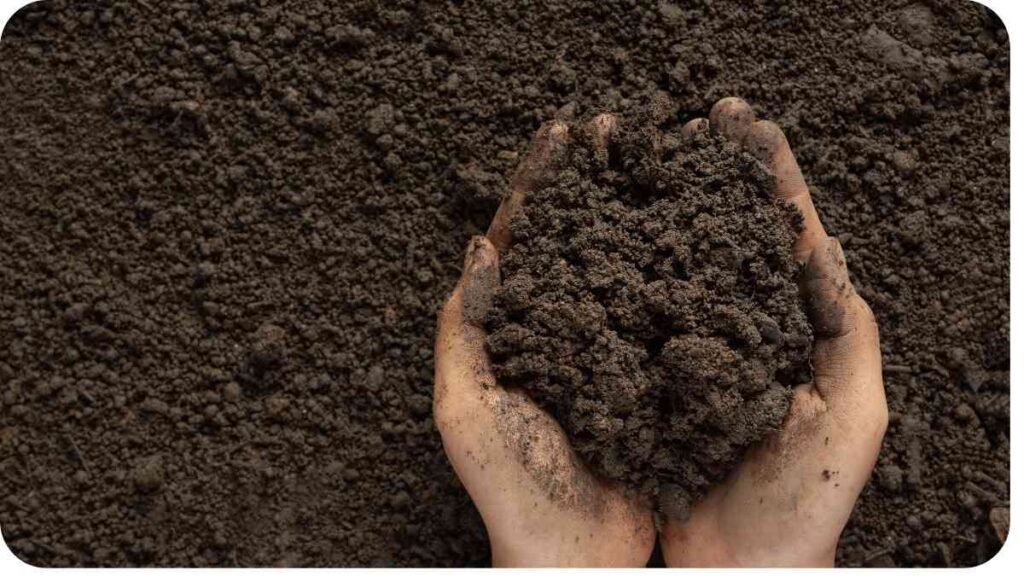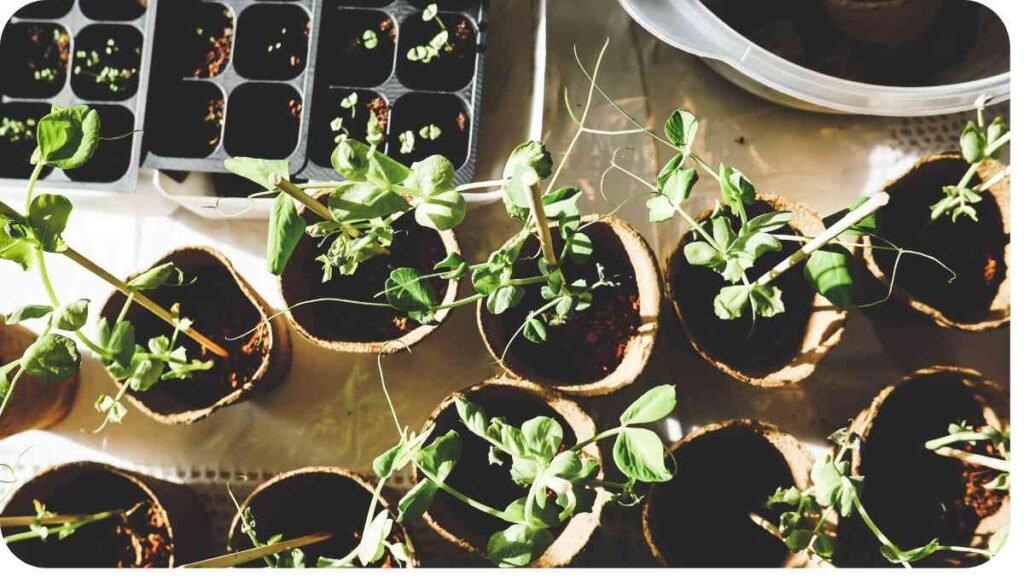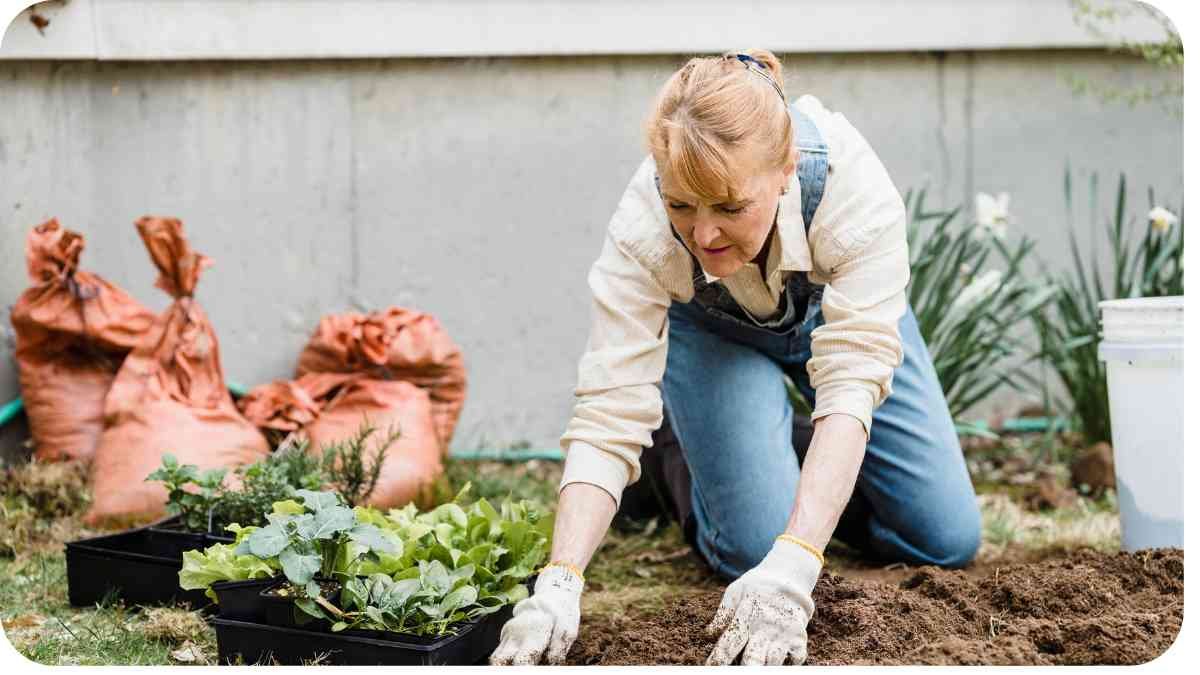Are you an aspiring gardener wondering where to set your roots? The quality of soil plays a crucial role in determining the success of your gardening endeavors. While some states boast fertile grounds, others may present challenges.
Let’s delve into the best states that offer optimal soil conditions for gardening and explore how you can make the most of your gardening efforts, regardless of your location.
| Key Takeaways |
|---|
| 1. Soil quality is a crucial factor in gardening success. |
| 2. Understanding soil composition and factors affecting soil quality is essential for selecting the right gardening location. |
| 3. Certain states, such as California, Iowa, and Wisconsin, offer optimal soil conditions for gardening. |
| 4. Implementing soil improvement techniques can enhance soil quality and promote healthy plant growth. |
| 5. Successful gardening requires proper planning, regular maintenance, and continuous learning. |
Understanding Soil Composition
Before we delve into which states have the best soil for gardening, let’s understand what makes soil ideal for plant growth. Soil composition comprises various components, including sand, silt, clay, organic matter, and microorganisms.
The ideal soil type, known as loam, strikes a balance between these components, offering adequate drainage, moisture retention, and nutrient availability for plants.
Implementing no-till gardening techniques can revolutionize your gardening approach. By minimizing soil disturbance, you preserve its structure and nutrients, fostering healthier plant growth while reducing erosion and weed proliferation.
Factors Affecting Soil Quality
Several factors influence soil quality, such as climate, topography, parent material, and human activities. States with diverse climates and geological formations may exhibit a wide range of soil types, each with its unique characteristics. Understanding these factors can help you identify the best gardening locations within your state or region.
Explore the unique gardening climate of Frisco, TX to plan your garden effectively. By considering factors like temperature, rainfall, and soil composition specific to your zone, you can optimize plant selection and care practices for thriving gardens in Frisco.
Best States for Gardening Soil

Table: Top 10 States with Ideal Soil Conditions for Gardening
| Rank | State | Soil Quality | Climate | Topography | Notable Crops |
|---|---|---|---|---|---|
| 1 | California | Excellent | Mediterranean | Varied | Fruits, Vegetables |
| 2 | Iowa | Outstanding | Temperate | Plains | Corn, Soybeans |
| 3 | Illinois | Exceptional | Temperate | Plains | Corn, Soybeans |
| 4 | Ohio | Superb | Temperate | Plains | Corn, Soybeans |
| 5 | Wisconsin | Superb | Temperate | Forests, Plains | Dairy, Cranberries |
| 6 | Pennsylvania | Great | Temperate | Mountains, Plains | Corn, Soybeans |
| 7 | Michigan | Great | Temperate | Plains, Lakes | Apples, Cherries |
| 8 | Florida | Excellent | Tropical | Coastal, Swamps | Citrus, Vegetables |
| 9 | Texas | Good | Varied | Plains, Desert | Cotton, Peanuts |
| 10 | Oregon | Good | Temperate | Coastal, Forests | Berries, Hazelnuts |
Choosing a state with favorable soil quality can significantly impact your gardening success. These top 10 states offer diverse climates and soil types suitable for a wide range of crops.
Discover the art of xeriscaping to create an environmentally friendly and low-maintenance landscape. By selecting drought-tolerant plants and efficient irrigation methods, you can conserve water resources while beautifying your outdoor space.
Soil Improvement Techniques
While certain states may not naturally have the best soil for gardening, there are techniques you can employ to enhance soil quality and create a thriving garden oasis.
Table: Comparison of Soil Improvement Methods
| Method | Description | Pros | Cons |
|---|---|---|---|
| Composting | Decomposed organic matter added to soil for improved fertility | Enriches soil, reduces waste | Requires time for decomposition |
| Mulching | Layering organic materials on soil surface for moisture retention | Suppresses weeds, regulates soil temperature | May attract pests if not managed properly |
| Cover Cropping | Planting specific crops to improve soil structure and nutrient levels | Adds organic matter, prevents erosion | Requires space for additional crops |
| Soil Testing | Analyzing soil composition to determine nutrient deficiencies | Provides targeted fertilization | May incur costs for professional testing |
By incorporating these soil improvement techniques into your gardening routine, you can nurture healthy soil and cultivate bountiful harvests, regardless of your location.
Discover the optimal gardening conditions in your area by understanding the gardening zone of Pittsburgh, PA. Knowing your zone helps you select plants suited to your climate, ensuring successful growth and bountiful harvests year after year.
Tips for Successful Gardening in Any State

Beyond soil quality, successful gardening hinges on proper planning, care, and attention to detail. Here are some tips to help you flourish as a gardener, no matter where you reside:
- Know Your Climate: Understand your region’s climate patterns and choose plant varieties that thrive in your area’s conditions.
- Start Small: Begin with a manageable garden size to avoid feeling overwhelmed, then gradually expand as you gain experience.
- Regular Maintenance: Stay on top of watering, weeding, and pest control to keep your garden healthy and vibrant.
- Crop Rotation: Rotate crops annually to prevent soil depletion and minimize pest and disease buildup.
- Continuous Learning: Stay curious and informed about gardening techniques, plant care, and seasonal tips to improve your skills over time.
Don’t let limited space deter your gardening passion. Explore the possibilities of urban gardening and transform even the smallest areas into vibrant green havens. With creative solutions and compact plant varieties, you can cultivate a thriving garden oasis in urban settings.
Conclusion
Selecting the right state with optimal soil conditions is a pivotal step in embarking on your gardening journey. Whether you’re drawn to the fertile plains of Iowa, the sunny orchards of California, or the lush landscapes of Oregon, each state offers unique opportunities for cultivating thriving gardens.
Understanding soil composition, considering environmental factors, and implementing soil improvement techniques are essential aspects of successful gardening. Moreover, by adopting best practices and staying attuned to your garden’s needs, you can overcome challenges and reap the rewards of a fruitful harvest.
Remember, gardening is a continuous learning process filled with joy, surprises, and occasional setbacks. Embrace the journey, nurture your green thumb, and enjoy the bountiful fruits of your labor as you cultivate a connection with the earth.
So, whether you’re a seasoned gardener or a novice enthusiast, let the soil be your guide as you sow the seeds of possibility and watch your garden flourish into a vibrant oasis of beauty and abundance.
Happy gardening!
Further Reading
- Gardening-Friendly States: Explore a comprehensive ranking of states based on their gardening friendliness, considering factors like climate, soil quality, and gardening resources.
- What States Have the Best Soil for Gardening?: Dive deeper into the discussion of soil quality across different states and discover which ones are best suited for gardening.
- 12 States That Are Best for Backyard Gardeners: Learn about specific states that offer ideal conditions for backyard gardening, including climate considerations and gardening tips.
FAQs
Which states have the best soil for gardening?
Various states offer excellent soil conditions for gardening, including California, Iowa, Illinois, Ohio, and Wisconsin, among others.
What factors determine soil quality for gardening?
Soil quality for gardening is influenced by factors such as composition (sand, silt, clay), drainage, nutrient content, pH levels, and organic matter.
How can I improve soil quality for gardening?
You can improve soil quality by incorporating organic matter through composting, mulching, cover cropping, and regular soil testing to identify and address nutrient deficiencies.
What are some tips for successful gardening in any state?
Tips for successful gardening include selecting appropriate plant varieties for your climate, starting with a manageable garden size, maintaining regular care and maintenance, implementing crop rotation, and staying informed about gardening techniques.
How can I find gardening resources specific to my state?
You can find state-specific gardening resources through local agricultural extension offices, gardening clubs or associations, online forums, and gardening publications tailored to your region.

Hellen James, a seasoned author at Unified Publishers LLC, brings a wealth of expertise to diverse niches. Specializing in pet care, outdoor adventures, lifestyle, wellness, and culinary delights, Hellen crafts insightful and engaging content that unlocks the full potential of readers’ interests. Explore, learn, and thrive with Hellen James.

